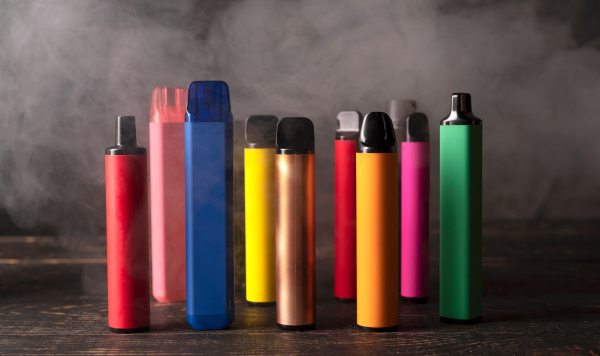Dear Secretary of State
I am writing, as Chair of North London Waste Authority (NLWA), to congratulate you on your appointment as Secretary of State for Energy Security and Net Zero.
NLWA is the statutory waste disposal authority for the seven London boroughs of Barnet, Camden, Enfield, Hackney, Haringey, Islington, and Waltham Forest. We serve a quarter of the population of London – over 3% of the population of England.
While our primary responsibility is to deal with recycling and residual waste, the Authority has a significant role to play in the UK’s transition to Net Zero as well as to help strengthen our nation’s energy mix and security. My NLWA colleagues hosted your departmental officers just last week and discussed the challenges of increasing recycling rates in dense urban areas among other pertinent issues.
NLWA is managing the nationally significant North London Heat and Power Project at Edmonton EcoPark in Enfield. It includes a world-class, high-tech Energy Recovery Facility, which will provide low carbon heat and power for up 60,000 homes and businesses in north London through a district heat network, one of the largest in London. Currently under construction, its commissioning is due to begin in 2026.
Since receiving our Development Consent Order from the Department for Business, Energy and Industrial Strategy in 2017, sustainability has been at the forefront of the project. The facility will be a major asset in realising the objectives of the Government’s Heat and Buildings Strategy and we very much welcomed the Government’s award to Haringey Council for £27.8 million in funding for two heat networks, which will supply heat to almost 10,000 homes, primarily from the new facility. Continuing government investment in these cutting-edge, low-carbon heating technologies will help drive a lasting move away from fossil fuels.
The EcoPark transformation also includes a vast, advanced Resource Recovery Facility, which is close to completion. One of its main purposes is to remove more still-viable materials from the waste stream for the circular economy and therefore reduce the amount of waste that needs to be disposed.
While energy recovery is the most environmentally responsible way to deal with residual waste, there is currently no way of disposing of waste with zero carbon dioxide. NLWA wants to instal carbon capture and storage in the early 2030s to enable the Energy Recovery Facility to be carbon negative – the current facility is being built to be carbon capture ready. We welcome the government’s support for the rapid development of, and investment in, carbon capture and would like to see waste become a priority sector for assistance.
NLWA shares, with your department, the goal of harnessing the social and economic benefits of the lower-carbon energy transition. We’ve demonstrated this through our social value programme, which is prioritising employment and training opportunities for local people and businesses, as well as running a schools’ programme to stimulate interest in STEM subjects, construction, engineering, and waste infrastructure related careers.
In the last ten months, we’ve also returned almost £15M in windfall electricity earnings from our existing energy-from-waste facility, enabling the seven boroughs we serve to have more money for essential services. This windfall was only possible because the facility is wholly publicly owned. However, the inclusion of publicly owned energy-from-waste facilities in the Government’s new Electricity Generator Levy will curtail future dividends if energy prices spike to unusually high levels again. Publicly owned energy-from-waste facilities should be excluded from the levy so that residents can benefit economically from local facilities.
Similarly, plans for the UK Emissions Trading Scheme (ETS) need to be designed so they avoid penalising local authorities and facilities with advanced emissions controls. The ETS should reflect the priorities of the waste hierarchy and provide proper incentives for operators to minimise emissions, thereby demonstrating support for projects working to become net zero.
My NLWA colleagues have discussed with your officers, the implications of ETS and the potential implications on the Authority and its constituent boroughs. In its current form, the ETS will bring a new annual liability to NLWA of least £20 million per year, which could increase our costs of waste disposal for council taxpayers by at least around a third.
Likewise, we would urge the Government to link ETS with Extended Producer Responsibility to ensure that the costs of disposing of unnecessary, unrecyclable, fossil-fuel-based items is born by manufacturers rather than by taxpayers. Linking these two legislative measures together will help drive design innovation by manufacturers whilst encouraging a systemic reduction in the whole lifecycle carbon emissions of products, whether embedded or due to disposal for instance. DESNZ, Defra, and HM Treasury can work together to decarbonise the whole waste system so that the targets set out in the 6th Carbon Budget can be more effectively met.
I would welcome the opportunity to meet with you and your Minister for Energy to discuss these issues further, and to show you our project that will bring energy security for thousands of people. If you would like to meet and visit the EcoPark or have any questions about how we can partner to achieve lasting change that supports the Government’s strategies, please do get in touch and my colleagues would be happy to arrange.
Yours sincerely,
Cllr Clyde Loakes,
Chair
North London Waste Authority







